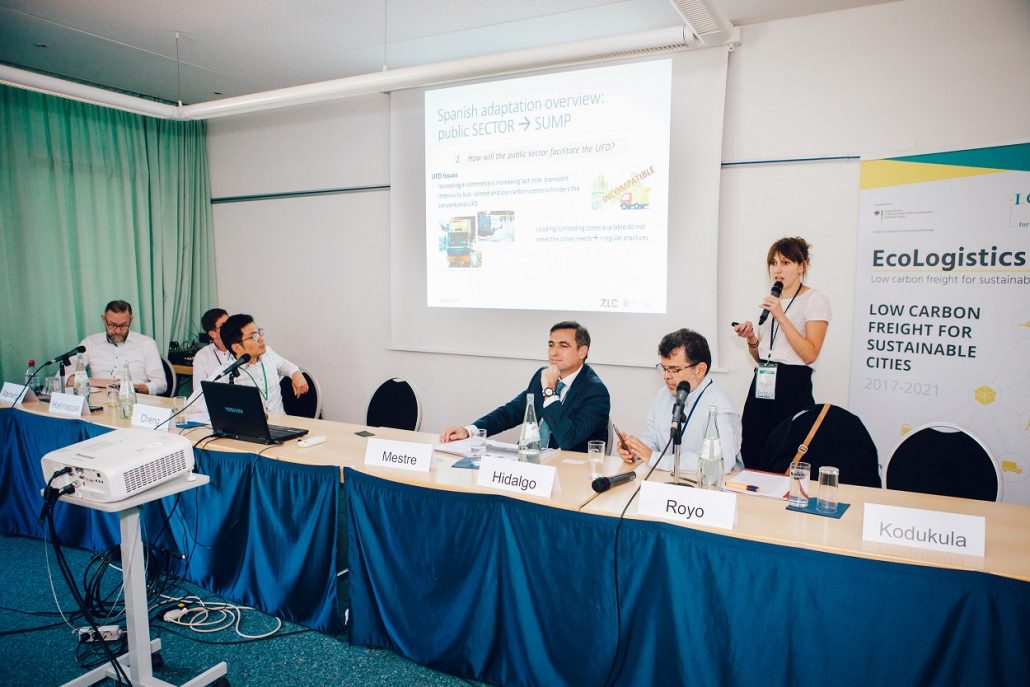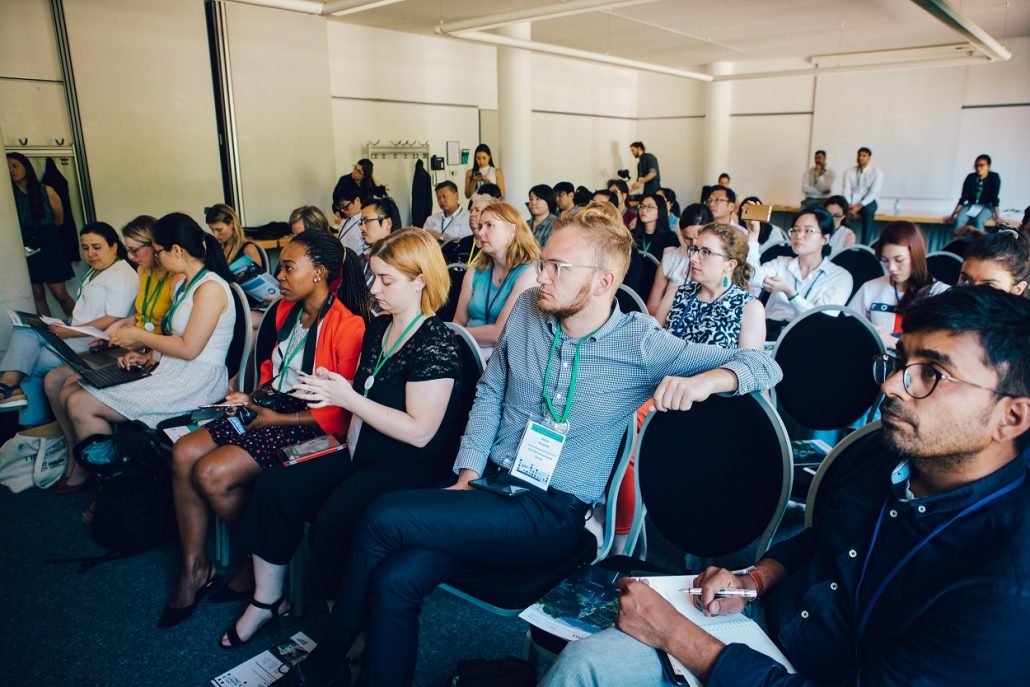This blog was written by Yiqian Zhang, Sustainable Mobility Officer, ICLEI World Secretariat
From 26-28 June 2019, the 10th Resilient Cities Congress took place in Bonn, Germany. The “EcoLogistics: Freight transport in urban resilience” session brought together practitioners and experts from cities, organizations and private sectors to discuss the challenges in urban freight and explore the good practices. The panel included Ian Wainwright from Future City Logistics- London, Dario Hidalgo from Despacio, Colombia, Beatriz Royo from Zaragoza Logistics Center, Bjoern Hannappel from DHL, Germany Ramón Javier MESTRE, Mayor of Cordoba, Argentina and Santosh Kodukula from Wuppertal Institute, Germany.
Freight transport is at the core of today’s global economy; in emerging regions such as Asia, the logistics industry accounts for 15-25 percent of GDP. However, urban freight also causes adverse impacts to cities, including traffic congestion, poor air quality, noise pollution and intensity of road accidents.
Reducing the negative impacts and improving the efficiency of urban freight offers great potential for local governments and private companies to align their services and visions for sustainable urban freight.
Managing urban freight issues is tough. In the panel discussion at the Resilient Cities Congress 2019 in Bonn, Germany, Tsu-Jui Cheng, Sustainable Mobility/ EcoMobility program manager outlines some of the key challenges. Urban land use and transport planning often overlooks freight activities as they are largely commercial and rarely directly under municipal control. The freight sector is fragmented and most of the transport companies providing urban freight services tend to be small. The complexity of freight operations makes it difficult to deploy technological innovations and effective fleet management skills. Furthermore, the latest estimate from the International Transport Forum (ITF) says that global freight volume will triple between 2015 and 2050 based on current demand. Rapid growth in e-commerce could lead to increases in freight volumes between 2 and 11 percent and increases in freight-related emissions by 4 percent (ITF Transport Outlook, 2019).
Due to the increased volume and fragmented consignments, the disruptive effects of urban freight can be easily seen on last-mile logistics. Dario Hidalgo, Executive Director of Despacio pointed out the challenges for logistics in Latin American cities: urban freight is composed of a range of less regulated and more informal types of vehicles.
While urban freight issues are difficult to tackle, good practices can be found from cities worldwide that are taking collaborative action with local stakeholders to deliver sustainable urban freight. In 2014, Buenos Aires, Argentina has set up a city micro center that gives priority to pedestrians over cars in the public space. The space requires modifying the logistics delivery in this area using innovative strategies to increase the speed of freight movement while ensuring road safety for pedestrians. Through this initiative, the city promotes cooperative practice, where the suppliers of the stores accepted sharing deliveries to reduce the number of trips. The city of Bogotá piloted an off-hour delivery project involving 17 companies who volunteered to operate during non-conventional hours. The travel time for deliveries was reduced significantly, which led to improvement in productivity and services provided by the operators.
Private companies are also working to deliver goods efficiently and effectively. Deutsche Post DHL Group partners with cities and provides first and last mile services with e-mobility solutions. City hub for parcel delivery has also been implemented in several European cities.
During the session, the panelists proposed a number of actions that cities could undertake to deliver sustainable urban freight and increase climate resilience. Key principles such as integrating freight into land-use and transportation system planning, and the development of integrated multi-modal transportation networks may look different in different cities but are applicable across diverse contexts. Additionally, engaging local stakeholders is key to achieve a collaborative vision and strategy.
The EcoLogistics project is supported by the German Federal Ministry for the Environment, Nature Conservation and Nuclear Safety (BMU) through the International Climate Initiative (IKI). More information at https://sustainablemobility.iclei.org/ecologistics/





